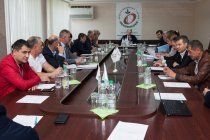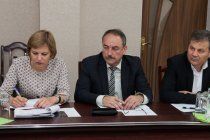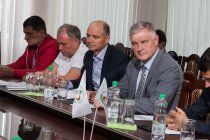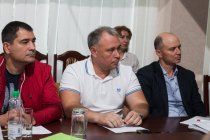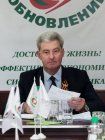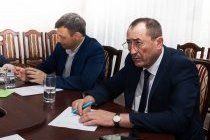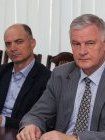 Русский
Русский English
English-







About medicines and the future of medicine
The reason for the dialogue with the three vice-premiers and the Minister of Health about the current state of the branch of the people's deputies was the situation with a significant debt of the budget to the suppliers of medicines to medical institutions. Debts to various pharmaceutical companies vary from 2 to 5 million rubles. It comes to the fact that they warn about stopping the supply of medicines to hospitals. This is what disturbs people's deputies and their electors. This is despite the fact that last year the availability of medicines for medical institutions amounted to 17% of the need (48 million rubles), in 2016 - 13% (40 million rubles). The order of these figures indicates that last year 83% of all medicines were purchased by the patients themselves. This is the very list of medicines that doctors supply to patients.
The situation must be changed urgently - this was the conclusion of a lengthy discussion. The Ministry of Finance supported the Ministry of Health in its desire to increase the limits for the industry in the second half of the year. Now the government is preparing a legislative initiative to amend the provisions of the law on the republican budget for 2018 for its submission to the Supreme Council.
It seems that the private situation with drugs has brought members of the faction and invited government representatives to a more extensive and thorough talk about the state and prospects of Russian medicine. There is no clear vision, what will it be in the future. This is precisely the subject of discussion by all authorities. It should be noted that from the whole array of numerous complaints to the Administration of the President, the Supreme Council, the Government, deputies in the districts, almost a third concerns medicine. In this regard, the majority of the members of the faction suppose that if we are not able today to provide medical care free of charge in accordance with the provisions of the Constitution, then we must provide the population at least a minimum guaranteed list of medical services free of charge. Today, citizens have a lot of confusion with this: what are they entitled to for free, and what do they have to pay for? The answers to this question differ not only in different cities, but also in different medical institutions.
Earlier, on February 3, the President held a meeting on the development of Pridnestrovian medicine. Vadim Krasnoselsky gave instructions to form a working group to work out proposals. Until June 1, it must complete the work and develop certain recommendations in this regard, a plan of relevant activities. It is unequivocal that they will reflect the functioning of the medical network (how many, where we will have hospitals, polyclinics), the development of clinical protocols, according to which the followers of Hippocrates will have to carry out their medical activities, increase the volume of financing of purchase of medicines, capital investments in the health sector. The goal is clear and understandable - to make domestic medicine accessible and quality.
Particularly controversial was the theme of the introduction of insurance medicine. Many countries work on its principles, but there are many "pitfalls" in the system. In any case, its introduction is an additional fiscal burden on employers and citizens. Whether we pull it in the current period is still a big question. In general, there are a lot of work to be done to set up a system of medical care, and everyone. Including the profile parliamentary committee, in which three doctors work at once.
The head of the Parliamentary Committee on Legislation, Defense, Security, Peacekeeping, Law Enforcement, Protection of Citizens' Rights and Freedoms Galina Antyufeeva submitted to the court of her colleagues a table of amendments to the Code of Administrative Offenses that consists of 48 points. They are the fruit of the activities of the members of the working group and concern administrative responsibility for violations of the Rules of the road.
The presentation of the law-in-draft on public procurement completed the long work of a group of its authors. Important for the Republic of the law-in-draft, which failed to take in the previous convocation of the Supreme Council, was brought to the court of the deputy corps for adoption in the first reading.
The approval of members of “The Obnovlenie” was received and ready for adoption in the second reading initiated by the presidential law-in-draft that establishes a monthly surcharge for non-working pensioners who receive a pension below the minimum subsistence level.
Among the issues discussed during the meeting were issues related to measures of social support for citizens by providing them with additional benefits, as well as splitting of funds collected from negligent drivers in the form of fines for violations of traffic rules in the video security system "Safe City", between the republican budget and the special account of the Ministry of Internal Affairs.


